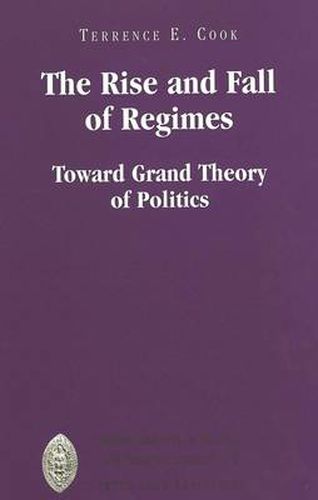Readings Newsletter
Become a Readings Member to make your shopping experience even easier.
Sign in or sign up for free!
You’re not far away from qualifying for FREE standard shipping within Australia
You’ve qualified for FREE standard shipping within Australia
The cart is loading…






A contribution toward grand theory of political change, The Rise and Fall of Regimes describes three kinds of rule systems: (1) pragmatic, or opportunistic, Machiavellian; (2) informal normative, or moral; and (3) formal normative, such as laws and treaties. Changing relative ascendencies of these rule systems define six ideal-typical stages in the development and decline of both states and international regimes. As implicit in Martin Wight, these stages of distinctive rules climates may in development move Machiavellian, to Grotian, to Kantian, and then reverse these in the three stages of decline. In describing each stage, the author explores the dynamic mechanisms, which accent shifting kinds of problems as these relate to coalitions that form or fall apart behind political communities, regimes, or specific leaders. The last chapter suggests relevance to understanding systems of power and the practical goal of predicting and preventing wars.
$9.00 standard shipping within Australia
FREE standard shipping within Australia for orders over $100.00
Express & International shipping calculated at checkout
A contribution toward grand theory of political change, The Rise and Fall of Regimes describes three kinds of rule systems: (1) pragmatic, or opportunistic, Machiavellian; (2) informal normative, or moral; and (3) formal normative, such as laws and treaties. Changing relative ascendencies of these rule systems define six ideal-typical stages in the development and decline of both states and international regimes. As implicit in Martin Wight, these stages of distinctive rules climates may in development move Machiavellian, to Grotian, to Kantian, and then reverse these in the three stages of decline. In describing each stage, the author explores the dynamic mechanisms, which accent shifting kinds of problems as these relate to coalitions that form or fall apart behind political communities, regimes, or specific leaders. The last chapter suggests relevance to understanding systems of power and the practical goal of predicting and preventing wars.